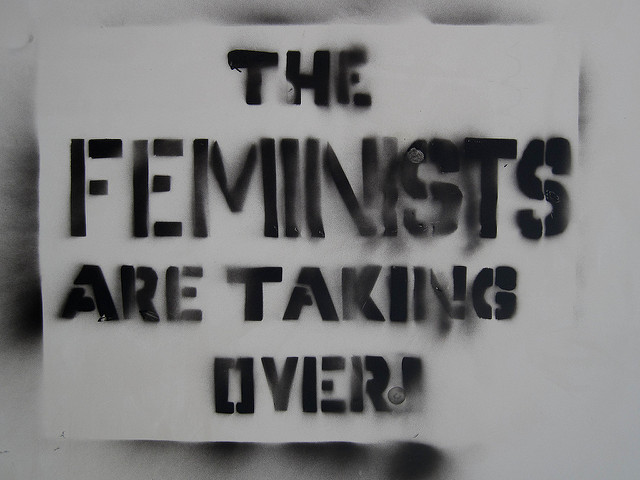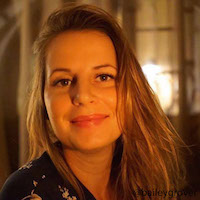“When everybody is equal, we are all more free.” ~ President Barack Obama
The other day a friend of mine who I have big respect for posted a status update online. It read: “You know what feminism really is? One. Big. Fat. Contradiction.”
This gave me the feeling that hope was bleak for any real and drastic change. Even though it was only an opinion, it seemed like a giant step (backward) in what has felt like overall progress in this conversation.
In my mind, this woman who I look up to and admire is inherently feminist. She is a gorgeous and confident woman, a successful entrepreneur, a loving mother, and equal partner to her husband. A strong, capable, equalist—this is how I picture a feminist.
I know what my friend’s intention was in her statement. She was expressing distaste for “those” feminists who want equal rights, but also want special treatment. Those who want to have their cake and eat it too. You can’t build a new, equal idea of gender roles when the perspective of women is given priority.
I waited for the inevitable backlash of opinions I was sure would spill out from behind the comfort of the audience’s computer screens. As I silently observed, the conversation that developed pleasantly surprised me. It ended up being a mindful, respectful and important conversation.
There were absolutely people who disagreed with what she was saying. But people chose to engage and in an eloquent way that shined the light on some misunderstandings, provided the opportunity for respectful debate and offered an educational opportunity.

We definitely have much less to fight for these days in terms of basic rights, but this is even more reason to be involved and take the reigns in the conversation. It is from this seat of extreme privilege that we have the opportunity to stand up to global injustice. Because while we have to deal with a wage gap, shortage of female CEOs, and brushing off overtly sexist comments from time to time, across the world women and girls are being denied education, suffering abuse, being raped as a war tactic or ritual and married off as children. They are fighting a much different battle than us.
The issue lies in the word itself. We can’t seem to come to an agreement about what the definition of “feminism” is. It seems the definition doesn’t matter so much, though—it’s the intention behind it.
There is so much resistance to the word, by those who don’t want to be grouped in with extremists, or perhaps those who haven’t felt a large amount of inequality in their own lives. There are some women who feel like they have been given equal opportunities to men. That their gender never caused them a great disadvantage, or that they never felt discriminated against.
For this group, the injustice may be harder to see on a personal level. And yes, we are fortunate in our first world countries. We are fighting for equal pay, and equivalent social status. We have come a long way and advanced past many injustices in the not so distant past—voting, land ownership, running in an election—that time has a way of making us forget.
We do not automatically disregard the divine masculine by giving attention to the sacred feminine. Both sexes are powerful in their own ways. Just like our unique and rightful place in the world. The word “feminism” has been convoluted to paint a picture in our head of man-hating, misandry, and an emotionally fused angry population.
Emma Watson’s UN speech in 2014 strongly highlighted that it is not the label of “feminism” that is important. It is the idea and ambition behind it.
It is the same video that helped youngest-ever Nobel Peace Prize laureate and activist for female education, Malala Yousafzai, accept that she identifies as feminist.
So you see, there are inherently feminist women representing the ideals of feminism, who still need convincing to label themselves a feminist.
If the stigma is too strong, we can choose another word to label ourselves. But first, let’s step back and investigate what sparked our negative view of this word. Do the intended message and ideals resonate? If so, maybe the word isn’t quite so bad, after all.
I am grateful that my friend made this public statement, in what was probably a thought unrelated to how big of a global issue this is, and more likely about an unfortunate run-in one of the less-than-pleasant personalities in her community.
It opened up conversation, and made a platform for women to share opinions on why this issue is important to them. At the end of the day everyone learned something.
“If you still hate the word, it is not the word that is important. It’s the idea and the ambition behind it, because not all women have received the same rights I have.” ~ Emma Watson
Author: Bailey Grover
Image: Rich Anderson/Flickr; _Lehook/Flickr
Apprentice Editor: Aga Wyrzykowska; Editor: Emily Bartran







Read 0 comments and reply